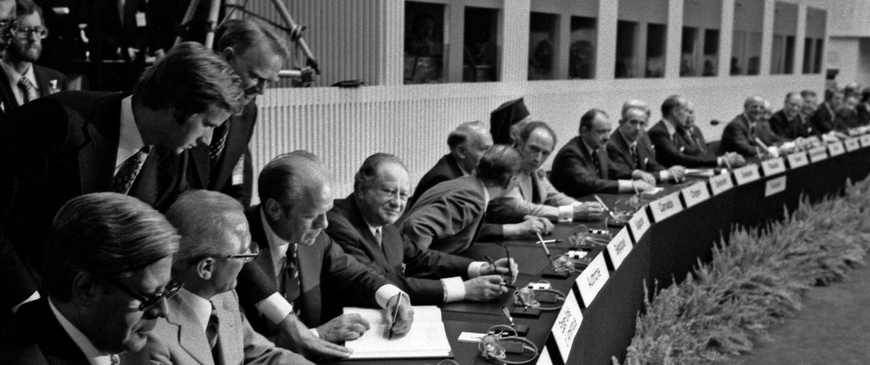
Can this Cold War agreement broker peace between Russia and the West?
“It was a very unusual assembly,” says Ian Bond, deputy director of the Centre for European Reform. “The fact that two sides that were brandishing nuclear weapons at each other were nonetheless able to find an agreement of this sort, is pretty extraordinary in itself.”
[...]
“Turning the commitments on human rights provided leverage, not only to Western governments to raise human rights issues with communist bloc counterparts, but to internal opposition within those countries,” says Bond. “This laid the foundations for the fall of the Soviet Union.”
[...]
“We’re in a phase where the two sides aren’t really talking to each other and are not really interested in talking to each other,” says Bond, “and that’s particularly true on the Russian side.”
So, could a new Helsinki process broker peace between Russia and the West again? Perhaps, says Bond, but the will to find peace needs to be there first. Helsinki wasn’t a tool for managing active conflict, rather, it was designed to guide parties already committed to de-escalation.
[...]
“Diplomats tend to overestimate the ability of diplomatic processes to find a solution when the two parties to a conflict…have not themselves already decided that they want [in] a settlement,” says Bond. “The precondition is that both sides have decided that they will get more out of de-escalation than maintaining the conflict. And we’re not at that stage yet.”
[...]
“All wars end eventually, and at that point you will need some sort of mechanism for managing the relations between adversarial powers,” says Bond. “And that’s basically what the Helsinki Final Act provided and might provide again.”
